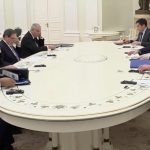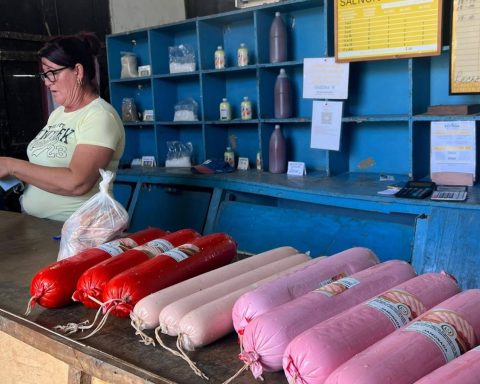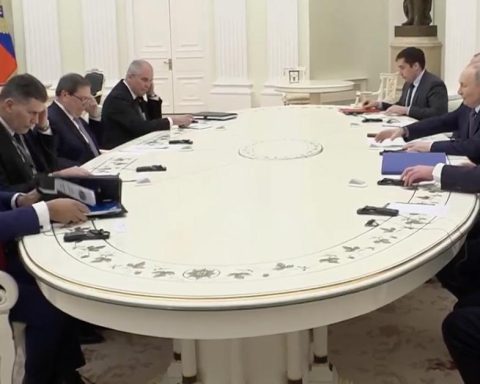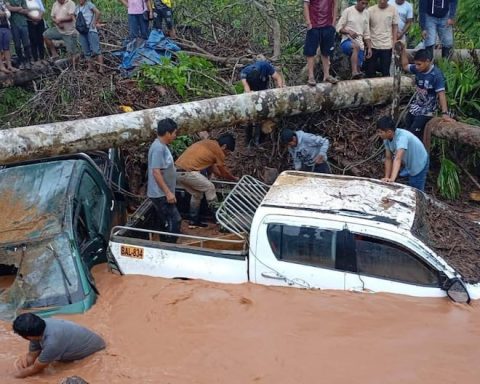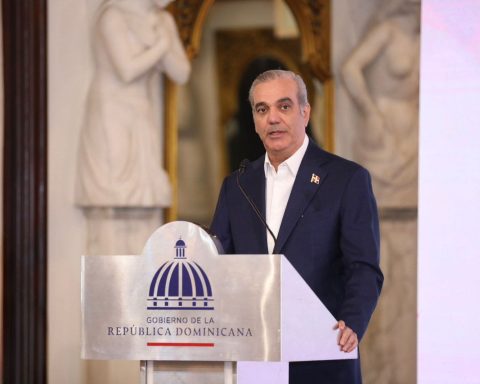When Ambassador Arturo McFields took his turn at the full session of the Permanent Council of the Organization of American States (OAS) to denounce the outrages and abuses of the Ortega dictatorship in Nicaragua, he took an unprecedented step in the history of international diplomacy.
Political scientists, human rights defenders, and former diplomats agree that McFields’ protest had hemispheric repercussions and severely hit the diplomacy of the regime of Daniel Ortega and Rosario Murillo.
The question now is whether the expansive wave of this project act will be able to influence the correlation of forces in the OAS regarding the crisis in Nicaragua, a process that remains stalled in the regional organization due to the fact that they do not have the necessary votes to decide stronger resolutions against the regime.
This Wednesday, March 24, the Ortega regime officially dismissed the journalist and diplomat as permanent representative of Nicaragua to the OAS and appointed Francisco Campbell in his place.
Campbell with “little diplomatic experience”
“The public resignation before the OAS is unprecedented and represents a strong blow against the regime. Subsequently, by having Francisco Campbell function as a representative before the OAS, Nicaragua will try to turn up the volume of the diplomatic rejection of the OAS. Campbell is one of the most loyal figures to the regime, he is part of the circle of power and is an example of the systematic form of nepotism, with many interests and favors committed to Ortega-Murillismo,” said political scientist Manuel Orozco, from the center of Inter-American Dialogue Thought.
By formalizing the dismissal of McFields and appointing Francisco Campbell to replace him, the regime created a de facto family fiefdom in the Nicaraguan diplomatic mission to the OAS, since his son, Michael Campbell Hooker, is the alternate permanent representative of Nicaragua to the OAS. OAS.
“In the immediate term, the tone of belligerence will increase with Ambassador Campbell, who is a person of little diplomatic experience and patience, known for his outbursts and accusations in public. That tone reflects the decay of the Nicaraguan position in the international arena in the face of strong international isolation. Campbell’s presence in diplomatic circles is viewed from the corner of the eye and recognized as a reflection of the functioning of the dynastic circle of power,” Orozco added.
Hopes that discussion will be reactivated in the OAS
The lawyer specializing in human rights issues and former director for the Americas of the Human Rights Watch organization, José Miguel Vivanco, in an interview on the podcast of the Washington Postbelieved that McFields’ denunciations can at least reactivate the discussion of the crisis in Nicaragua within the OAS.
“The statements he made are truly impressive. I think it is unprecedented in the history of the OAS. I don’t remember a similar case. The atrocities and human rights abuses in Nicaragua are documented, but now they are certified by whoever represented Nicaragua before the OAS,” Vivanco told the post.
“I think that these statements have generated so much commotion at the international level and in particular before the OAS, that I hope will bring important consequences. To begin with, reactivate the discussion of the crisis in Nicaragua before the OAS, at least. And to ensure that those governments that have not woken up and that act in an ambiguous way in condemning the human rights abuses of this regime, proceed to apply the Democratic Charter and thus redouble the pressure against the regime”, he added.
Complaint with “multiplier effect”
The former ambassador of Argentina in Nicaragua, Marcelo Valle Fonrouge, valued as “effective, useful and with a multiplier effect” the way in which McFields decided to denounce the regime’s abuses, using the session of the OAS Permanent Council as a lecture. role as ambassador of Nicaragua.
Valle Fonrouge added that time should be given to see if McFields’ denunciations manage to influence the correlation of votes in the OAS in relation to the crisis in Nicaragua.
“You have to see how Honduras is positioning itself, also El Salvador. Central America as a region, the same SICA (Central American Integration System) is not showing unity, a firm and vigorous unanimous condemnation of what is happening in its own region”, he estimated.
The former Argentine ambassador warned that McFields’ act could have exemplary effects within Nicaragua and more precisely, within the Ortega regime. But he warned about the fact that these resignations in protest against the abuses of the dictatorship, take place long after a long period of tolerance and permissiveness to them.
“We can expect consequences for the officials of the dictatorial administration themselves. It can become a hopeful light. Ambassador McFields himself, I remember, had a very hard pro-regime stance. Today we have it turning around, ”he opined.
“We have to be clear about something. It’s nice to get out, but after four years of 2018? Ethics is one. She spent all that time harshly defending the regime. I hope that in addition to his resignation and denunciation, at least there are also apologies for having been blind all these years, ”added former Ambassador Valle.
“We must continue counting the votes in the OAS”
Guillermo Belt, who was advisor to former Secretary General João Baena Soares and an OAS official for 37 years, said that during all the time he worked at the regional organization, “with all the dictatorships that took place in Latin America,” he never saw something similar to what McFields did.
Belt was categorical in explaining that the regime’s intentions to downplay McFields’ claims by arguing that he did not “represent Nicaragua” are outside of any diplomatic norm.
“That statement from the Nicaraguan Foreign Ministry is frankly ridiculous and makes Nicaraguan diplomacy look ridiculous. When Ambassador McFields spoke at the OAS, he was the official representative of Nicaragua to the OAS. They could have removed him five minutes later, but that does not diminish his role as permanent representative at that time, ”he opined.
The former official refers to the statement from the Ministry of Foreign Affairs of Nicaragua released shortly after McFields’ intervention before the OAS, in which they stated that “Mr. Arturo McFields does not represent us, so none of his statements is valid. Our representative before the OAS is Ambassador Francisco Campbell Hooker, duly accredited”.
Regarding the effects that McFields’ remarks may have on the discussion of the Nicaraguan crisis in the OAS, Belt also pointed out that this scenario remains uncertain, although he did point out that after McFields’ statement, there were 15 interventions by surprised ambassadors for the incident that was taking place, of which 13 were in the sense of applauding the “bravery and courage” of the diplomat.
Given the expressions of the Nicaraguan Ambassador who recognizes what his country is experiencing… pic.twitter.com/yjC8P2jPKY
— Washington Abdala (@turkabdala) March 23, 2022
The other two interventions, which were Argentina and Mexico, expressed that they took note of what McFields said, to send it to their respective Foreign Ministries. However, the representatives of Central American countries such as Guatemala, Honduras and El Salvador did not comment on the incident.
The #Paraguay ?? highlights the courage of Nicaraguan Ambassador Arturo Mc Fields Yescas, in supporting the reestablishment of democracy in his country, at the session of the OAS Permanent Council, and reiterates the call for the immediate release of political prisoners in #Nicaragua ??. pic.twitter.com/4dIwCt189p
– Ministry of Foreign Affairs (@mreparaguay) March 24, 2022
“We have to keep looking for votes. There were expressions such as the ambassador of Antigua and Barbudas, Sir Ronald Sanders, who expressed that the OAS had to be insisted that they could not continue to sit down with tyrannical regimes. That is positive. But given the reluctance of some Central American countries, plus what Mexico and Argentina have shown, it is time to continue counting and seeking the 24 votes to reach the maximum sanction that can be imposed in the OAS, which is the suspension of a member state, “he said. Belt.









